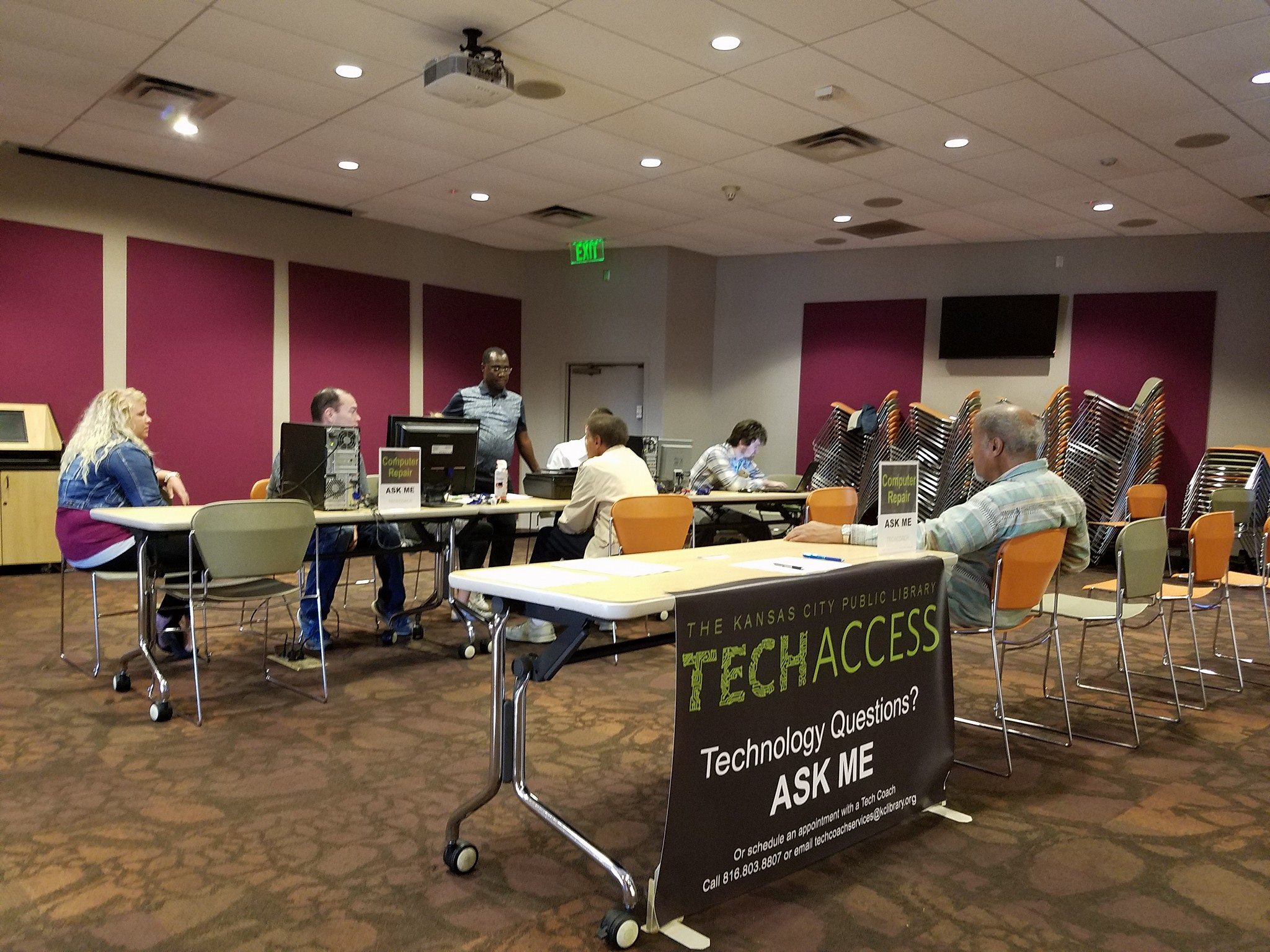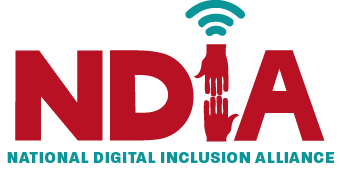Chapter 7: Tech Support

In an age of COVID-19 our reliance on access to, and navigation of the Internet has been underscored. Now more than ever, daily tasks such as online banking, telehealth, and communicating with friends and family require not only a device, but an understanding of that device. In the global pandemic, as organizations have shifted to distance learning as detailed in Chapter 4, practitioners have learned that it is not enough simply to provide devices to their learners at home if the students don't know how to use them.
This shift in program delivery has required organizations to rely more heavily on hotline tech support to work with their learners remotely. Community training programs have brought on volunteers to follow-up with their learners through a series of scheduled phone calls, in which the volunteer works with the student to grasp the basics of using a device for the purposes of eventually attending virtual programming.
Some topics include:
- Turning on the device
- Connecting to Wi-Fi
- Using the device's camera
- Sending an email
COVID-19 has made tech support absolutely critical for programs and their learners. In the absence of traditional in-person interactions, tech support workers rely heavily on skills like communication, narration, and most important, patience, as they help community members navigate the digital sphere remotely.
Even people who have limited digital skills and little or no computer experience will find themselves trying to use digital devices such as tablets, smartphones, e-readers and health trackers. Navigation of these devices is sometimes included as an element of basic digital literacy training, but libraries and community training centers are often asked for immediate, one-time assistance by people trying to use specific functions and apps.
In addition, community training programs are commonly approached—by their own students and other community members—for help with personal computer problems, ranging from virus infestations to hardware repairs.
This kind of general technology support for the community is inherently valuable for promoting digital inclusion and an effective public engagement mechanism for programs offering traditional digital inclusion services.
A growing number of digital inclusion providers now schedule regular community tech support events, inviting the public to bring in their digital device problems and questions for personal hands-on assistance. This assistance is often provided by tech-savvy volunteers recruited from schools or businesses.
Examples - Tech Support
ASC3 Super Tech Days
Ashbury Senior Community Computing Center (ASC3)64 is a digital inclusion provider serving thousands of clients in the greater Cleveland urban region. ASC3 “Super Tech Days” are on opportunity for members of the community to receive one-on-one help with using a digital devices. Participants bring their devices, from digital cameras to laptops, and are matched with a volunteer student from Case Western Reserve University to receive tailored use training. The event is open to the public and held three times a year at one of the organization’s computer centers.
Winston Net’s Quarterly Community Tech Nights
Winston Net of North Carolina65, one of the nation’s longest-standing digital inclusion providers, partners with technologically savvy staffers from the ICT company Inmar to offer a quarterly free evening of technical support to local residents. Community Tech Nights pair skilled trainers with participants to work one-on-one in troubling shooting and overcoming their challenges with using technology devices. The events are held at accessible local community centers throughout the year.
Oasis Institute’s Ask A Techie
Oasis Institute66 works to support healthy aging across the lifespan in more than ten localities nationwide since 1982. One cog of the organizations’ services is to support the digital literacy needs of its aging clientele. Oasis piloted the no-cost “Ask a Techie” program to St. Louis residents in 2015. The program has served hundreds of residents at the regularly held events offered at varying locations, including municipal offices. Residents come with a variety of concerns that inhibit their ability to use various forms of technology and work with a volunteer to address concerns that include updating passwords or generally figure out why “something doesn’t work.” The organization highlights the program through the National Techies Day in early October.
Connect.DC’s All Hands On Tech
The District of Columbia supports residents’ digital literacy needs by regularly offering free technical support days at a rotating group of public and nonprofit agencies throughout the city67. These approximately five-hour events enable residents to choose from a detailed list of service offerings with an estimated time of completing for each. Residents in need tech support can obtain information by texting a SMS short code as well as reserve a consultation in advance of the event by completing a brief online questionnaire.
References
- 64]
- “Super Tech Day 3 Times a Year,” Ashbury Senior Community Computing Center, accessed February 25, 2019, http://www.asc3.org/super-tech-day.html
(Back to text)
- 65]
- “Community Tech Night,” Inmar, accessed February 25, 2019, https://www.inmar.com/about/inmar-in-the-community/tech-night/
(Back to text)
- 66]
- “Oasis Connections Technology training resources,” Oasis Lifelong Adventure, accessed February 24, 2019, https://www.oasisnet.org/National-Programs/Connections-Technology
(Back to text)
- 67]
- “All Hands on Tech,” Office of the Chief Technology Officer, Washington, D.C., accessed February 24, 2019, https://connect.dc.gov/free-tech-support
(Back to text)
